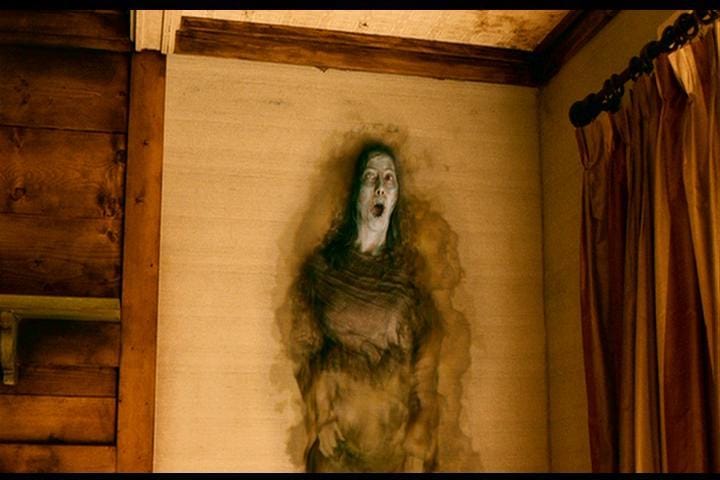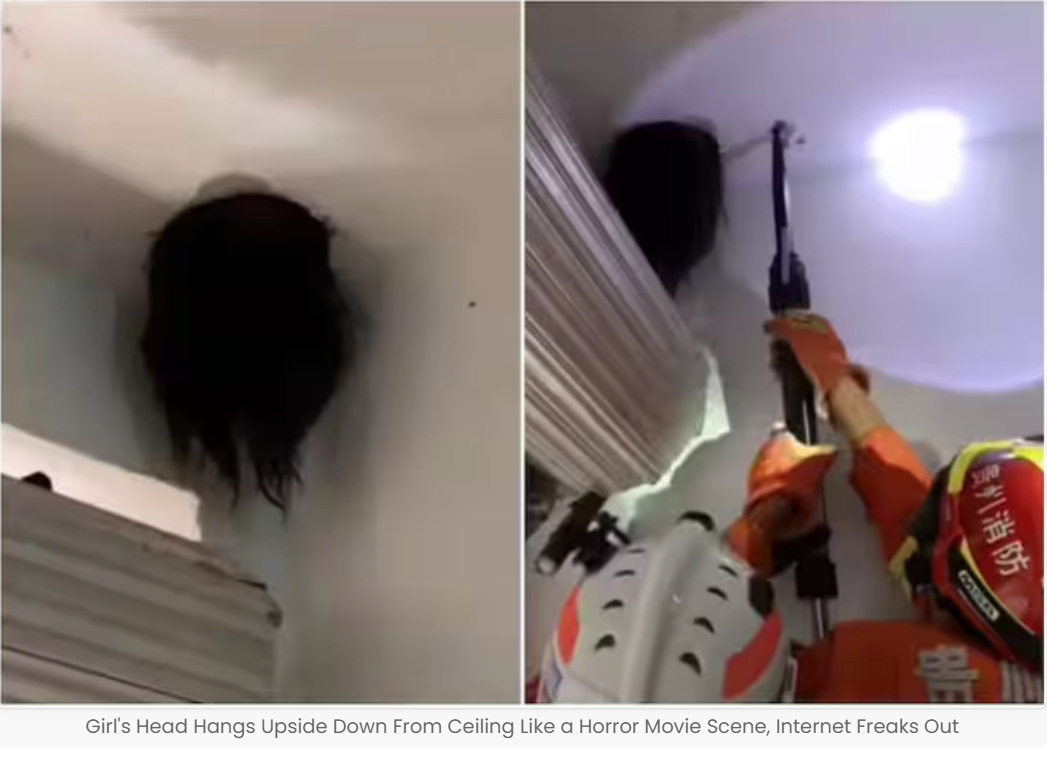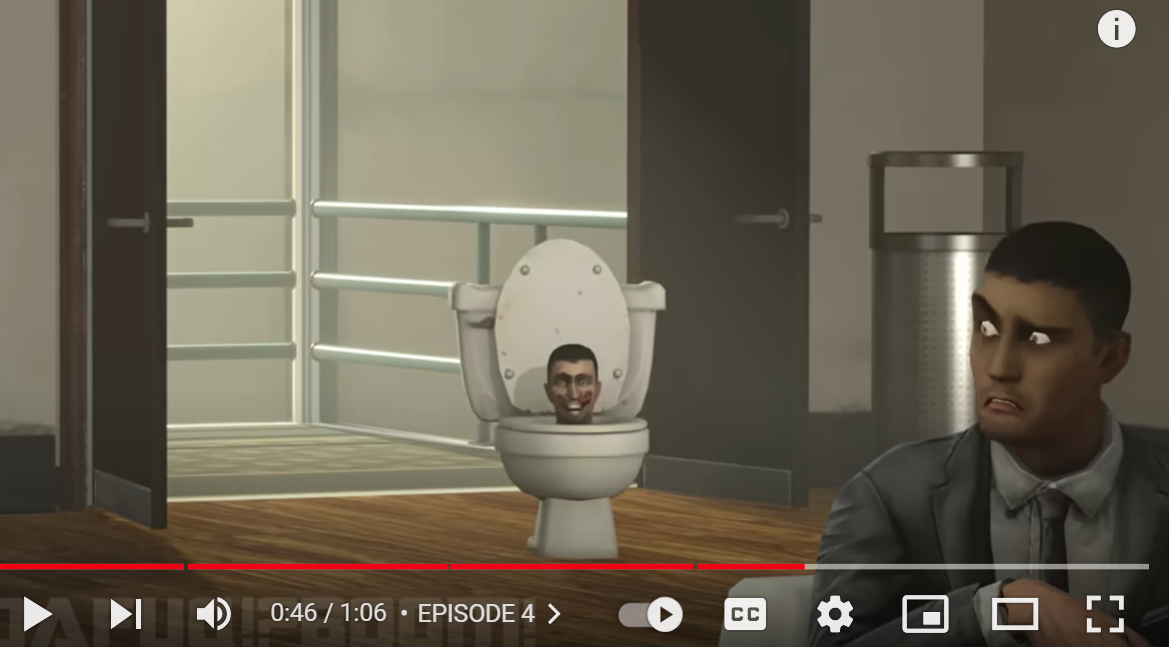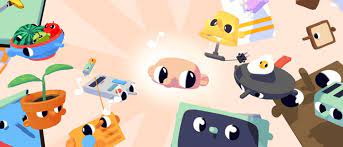Heading Out 2023

« To be honest, things weren't going so well even before the head started coming out of my floor. I was unemployed and universally hated thanks to some choices I'd made. »
Already within these first sentences of Kate Folk's short story « Head in the Floor » (Out There, 2022), the narrator does not really seem to be concerned with the head that is coming out of her flat's floor. « First it was just a soft patch. I figured maybe, you know, the floor was rotting. What did I know about floors? »
Indeed, with the head the question arises whose concern it actually is: Should the narrator really be responsible for something so suspicious and assaulting? She starts asking guys she had dated to come over and help her out. The first one, Lee, « does he know something about floors? », touches the soft spot « recoiled and said I should call my landlord. I wasn't going to do that. I've lived in this appartment for six years and never once have I called the landlord. One of my windows won't open and the another won't close. The toilet appears to be eating itself. »
So they just put a towel over the spot.

Speaking of toilets, this is how « The Head » by Bora Chung (Cursed Bunny, 2022) starts off:
« She was about to flush the toilet.
“Mother?”
She looked back. There was a head popping out of the toilet, calling for her.
“Mother?”
The woman looked at it for a moment. Then, she flushed the toilet. The head disappeared in a rush of water. »
This head reappears, of course, even though it « was probably more accurate to refer to it as “a thing that vaguely looked like a head” than an actual head. It was about two-thirds the size of an adult’s head and resembled a lump of carelessly slapped-together yellow and gray clay, with a few scattered clumps of wet hair. No ears, no eyebrows. »
The head in the toilet has as it turns out good reason to call this narrator mother, as it manifests a clogged form of disposals:
« The head strained as it formed unpracticed speech with its lipless mouth. “My body was created with the things you dumped down the toilet, like your fallen-out hair and feces and toilet paper you used to wipe your behind." »

Such a birth moment is paralleled in the other story: « After a few days I could no longer deny that the towel was bulging up in the middle. So I peeled it back and there was like. The top of a head. With straight brown hair. It was cresting, you know, like when they talk about the baby's head poking out. Out of the woman. It was the same thing, but you know. My floor. »

Both narrator's have a similar approach to the heads in their flat: They try to evade them as much as possible, without making a fuzz. The narrator of « The Head » develops constipation and bladder inflammation and is increasingly getting angry, but every attempt to get rid of the head ends in its returning (as it is made of new dumped things). The narrator in « The Head in the Floor » and the guys she invites all shy away from the floor as it rises: « You could just make out the upper edge of the eyebrows. Bandon agreed it was a man's head. You could tell. » One of the guys, Brandon, decides to stay with her and they observe it together:
« It's rising at the rate of around a quarter inch per day. So by 6:00 A.M. tomorrow. There we'll be eyes. »

They all seem to be in a state of lethargic acceptance, a consternation regarding a very aggressive invasion (by a man, by a creature) of their private spaces. A gendered version of the « narcolepsy of conciousness » which Catherine Malabou proposes vis-à-vis the climate crisis. The upbeat stroytelling sharply contrasts the horror movie meme, in which spots on the ceiling (Dark Water) or arms coming out of walls (Nightmare on Elm Street, Repulsion, Day of the Dead, Night of the Living Dead) are very much the concern of the protagonists, often overtly so. There is an almost as ariculated satirical meme: the notorious noisy neighbour Herr Riebmann who is living in the wall. The TV people in Murakami's short story of the same name seem very similar. But the head crushing into soaring housing markets (Chung's Seoul, Folk's San Francisco) has a particular prevalence in the 2020's.
And at the start of 2023 Skibidi Toilet appeared, the internet phenomenon that has been described as the « first foray » of Gen Alpha into internet culture (thank you A.C. and J.M. for the hints). The Youtube channel by Georgian user DaFuq!?Boom! is followed by millions to watch the fight between Skibidi toilets - singing heads sticking out of toilets - and their antagonists - humanoids having cameras or screens in place of their faces. With the other heads in the stories they share their casual state of existence, not worthy of a thorough explanation. But while the others are gendered stalking assaults on residents, here they are conquering the public and male dominated spaces with an aggressive happiness. As the Skibidi toilets fight surveillance and technology military actors while singing, they show a form of liberating agency.
All three stories, it seems, accelerate an already existing trope by breaking the private and hygienic spaces which have become so dear during Covid-19 shutdowns. Chung's story takes the horror story turn, when the narrator - after being left alone by her husband who has been promoted to an ever more time-consuming job and realising how old she has become - finds the head in the toilet evolved to her younger self. It pushes her to hand over her clothes and then forces her down the toilet to live there, while the « younger self », the « head that was no longer a head », leaves the bathroom.

The Oedipus twist is interesting because she is the mother of a real daughter, too, therefore excluding the simple reading of a mother-daughter metaphor - in contrast to the San Franciscan narrator who, very typical for the city and its housing market, has no child at all. Her story takes a different turn too, but by getting clogged and not by getting freed.
The head still continues to crest:
« The eyes are blue and like, alert. They blink at what you might call normal intervals. I mean to say they're alive. Looking at us. They seem like they're in an okay mood. Like, not tortured, at least. »
Until it doesn't:
« I imagine he's wearing a suit and he'll straighten up his tie and shake my hand and walk out my door and the floor will kind of neatly seal up after him. So like I won't have to tell my landlord after all […But it] isn't rising anymore. Like, it's stuck. Or maybe that's all there is. Maybe it's been just the top third of a head all along. »
The story pretty much ends there. Brandon and the narrator stay together with the head, but they put the towel back over it. And it also seems clear why this story is not as much a horror story like the others. Of course it's cruel and torturing, too, but the one who is stuck - that much seems to be clear after its description as a white collar man - must be the landlord himself, the one who is responsible and concerned with the thing that makes his tenants concerned.
And now, heading out of 2023 into 2024, we live under the promises of a reveal trailer for a new indie game: Henry Halfhead.
Meet Henry, merely half a head, but with the peculiar ability to possess and control any object within their reach. Discover every object's unique properties and abilities and cleverly combine them to progress through Henry’s not-so-ordinary everyday life.

While the fear of "half a head" sticking out of an overpriced flat is the result of a Covid-19 logisitics, it also bridges the conflicts between speculative materiality, post-humanism and the humanist subjectivity that seems still to be at heart of philosophical conflicts in the early 202o's. Henry is stuck in the floor, but he can transform into other material objects in the domestic living space:
Become a knife to slice your morning toast, water your beloved plants as a watering can, and experience how much fun making your bed as bouncy wobbly pillows can be. Unlock new rooms and objects as you progress and grow your surroundings into a joyful playground.
The domestic realism is - in contrast to Nastassja Martin's aleatory encounter with contingency in nature - halfbroken, halfpierced. It sustains at the same time the desire be half a person (there are, after all, 'halfrooms' in a 1.5-Zimmer Wohnung) which still thrives in the domestic space, which is one with it. As I have argued again and again, living is just not made for humans, it is not feasibly for their bodies, while it might be enough to alway be on their head ("Wohnen empfinde ich als Belastung" as Stefanie Sargnagel has said off the top of her head). Domestic realism, in its most emphatic and radical sense, produces the flat ontology of being flattend or of being the flat.